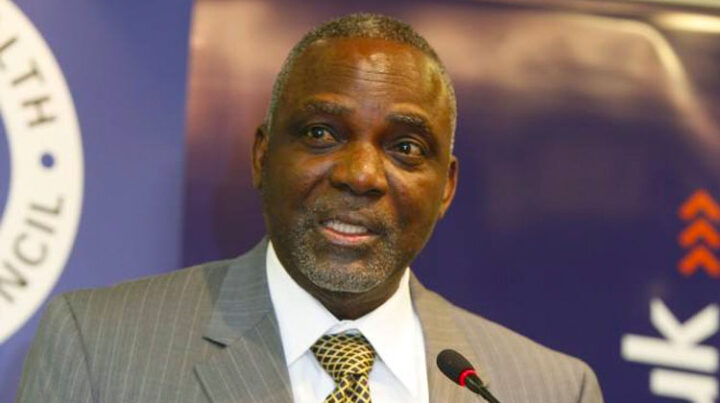Nigeria, a country blessed with over 200 trillion cubic feet of proven natural gas reserves, continues to grapple with inadequate electricity supply, plunging millions of its citizens into prolonged darkness. This paradox of energy poverty amid resource abundance has drawn renewed criticism from stakeholders, most notably former Minister of Power and founder of Geometric Power, Professor Barth Nnaji.
At a recent energy conference in Abuja, Nnaji voiced his frustration over the country’s perennial power crisis. He stated that it was both baffling and unfortunate that a nation with such immense gas potential still finds it difficult to provide stable electricity to its people. “It is almost unbelievable that with all the gas under our soil, Nigeria remains largely in the dark,” he said. “This is not just a failure of infrastructure but of policy and commitment.”

Nnaji, a leading authority in the power sector, emphasized that Nigeria’s gas-to-power value chain is broken. Many gas-fired power plants, he explained, are either underutilized or completely dormant because of erratic gas supply, pipeline vandalism, and weak regulatory coordination. He argued that the major challenge is not the absence of gas but the lack of infrastructure and investment to deliver gas to where it is needed — the power plants.
He cited examples of several power stations that were designed to generate thousands of megawatts of electricity but are running at less than half their capacity. This underperformance, he said, is directly linked to unreliable gas supply, poor maintenance, and an aging transmission system that cannot carry generated power efficiently.
Nnaji’s remarks echo widespread concerns among citizens and businesses who have long endured unstable power supply. Despite over two decades of reforms in the power sector, electricity generation still hovers between 3,500 and 5,000 megawatts — far short of what is required to meet the demands of a population exceeding 200 million.
The consequence of this is a heavy reliance on alternative sources like diesel and petrol generators, which are not only expensive but also environmentally harmful. According to industry estimates, Nigerian households and businesses spend over $14 billion annually on self-generated electricity. “This is not sustainable,” Nnaji stressed. “When small businesses and factories have to depend on generators to operate, their production costs skyrocket, and that affects the economy at large.”
He called on the government to overhaul the gas delivery network by investing in pipelines, eliminating bottlenecks in the gas supply chain, and ensuring better security in oil and gas producing regions. He also urged that the gas sector be deregulated to encourage greater participation from private investors, who can bring both funding and expertise.
Nnaji also pointed to the issue of policy inconsistency, noting that Nigeria has suffered from frequent changes in energy policies that discourage long-term investment. He recommended that the federal government develop a comprehensive national energy plan that ties together gas development, electricity generation, and infrastructure deployment.
He warned that if the country continues on its current trajectory, it risks further economic decline. “Electricity is at the heart of development. Without it, we cannot achieve industrialization, job creation, or poverty alleviation,” he stated. “We need a deliberate and aggressive plan to turn our gas into a tool for national growth.”
Furthermore, the former minister lamented the politicization of the power sector. According to him, too often, decisions about energy infrastructure are made not based on technical needs or economic benefits but on political considerations. He said the sector needs to be managed by professionals with a clear mandate and minimal interference.
Reacting to recent announcements by the federal government to ramp up generation and transmission, Nnaji said while those efforts are commendable, the execution has often been slow and inconsistent. “We hear grand plans every year, but the people remain in darkness. What we need now is action — visible, measurable, and sustainable.”
Nnaji also urged state governments to take a more active role in power generation and distribution, especially following recent constitutional amendments that allow states to participate more directly in the electricity market. “Now that states can generate and distribute power, they must seize this opportunity. Waiting on Abuja alone will not solve our problems,” he said.
The lack of adequate power has continued to take a toll on Nigeria’s economy, contributing to high production costs, limited investment, and low competitiveness. It has also discouraged foreign investors who see power as a basic requirement for business operations.
In conclusion, Nnaji reiterated that Nigeria’s energy future depends on its ability to turn its abundant natural gas into a reliable power source. “We are sitting on gold but living in darkness. It’s time to act. We owe it to our people and to future generations.”
As millions of Nigerians continue to battle erratic power supply, the call for a comprehensive and aggressive turnaround in the energy sector is becoming more urgent than ever. The message from experts like Nnaji is clear: the time for lip service is over — Nigeria must now light up its path with the gas it already has.
Support InfoStride News' Credible Journalism: Only credible journalism can guarantee a fair, accountable and transparent society, including democracy and government. It involves a lot of efforts and money. We need your support. Click here to Donate
